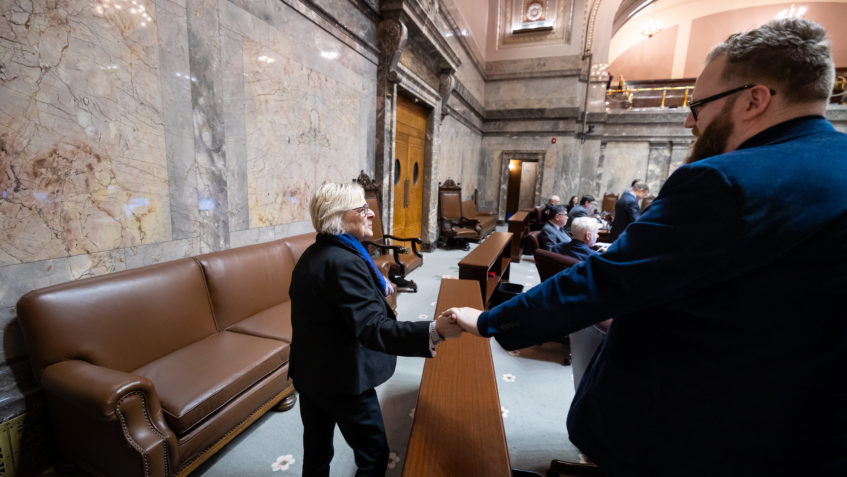OLYMPIA — Senate legislation passed late Wednesday by the House would clarify state guidelines on emergency child removal to ensure the safety of children from lethal risks posed by synthetic opioids while recognizing the importance of not removing children from their homes and families except as a last resort to avoid otherwise imminent physical harm.
Because the bill was amended in the House, the changes to SB 6109 must be approved by the Senate before the bill can be sent to Gov. Jay Inslee to be signed into law.
Sponsored by said Sen. Claire Wilson (D-Auburn), the bill was earlier amended in the Senate to direct the state Department of Health to collaborate with the state Department of Children, Youth and Families in convening a work group to develop additional public health information on child exposure to synthetic opioids for welfare workers, juvenile courts and families. In addition, the legislation had been adjusted to address concerns raised by lawmakers and stakeholders regarding appropriate training for court officials. The bill passed the House unanimously.
While emphasizing the importance of keeping families intact to promote child health and development, SB 6109 would clarify state guidelines to protect children when there is reasonable belief the child is in imminent danger of harm from abuse or neglect, including when high-potency synthetic opioids may result in imminent physical harm. To ensure the child’s safety in such circumstances, courts and other actors like law enforcement and hospitals will consider the lethality posed by high-potency synthetic opioids as well as public health guidance in evaluating the need for removal.
“The increasing epidemic posed by synthetic opioids requires we balance two colliding needs,” Wilson said. “We need to protect children from a new and growing threat, but it’s equally important to avoid the serious and lasting damage we know a child suffers if removed from their family for reasons not related to child safety.”
In addition to improving guidelines to protect children, Wilson said, the bill would promote family health by increasing the availability of treatment for people dealing with opioid disorders.
“You can’t do one thing without doing the other,” she said, emphasizing the need to address interrelated concerns. “Humans cost money. They cost lots and lots of money.”
Wilson emphasized that SB 6109 does not attempt to change legal standards around child removal but provide clarity to those laws to improve consistency in their interpretation in courts, by law enforcement, in hospitals and in other venues where child safety is a consideration.
“Laws passed in recent years have reduced out-of-home placement and improved safe reunification, which we know is in the best interest of all concerned and is a trend we want to amplify,” Wilson said. “This bill simply acknowledges and addresses the dramatic increase in fentanyl misuse by clarifying our laws and by improving access to treatment for those dealing with fentanyl addiction.”
Wilson said the need for the legislation is driven by an alarming increase in child fatalities in recent years, the growing misuse of synthetic opioids such as fentanyl, and the lack of services for those who in need of treatment for opioid addiction.
“Our world is changing, like it or not, and we need to change along with it to meet the more complex needs of today’s households,” Wilson said. “Kids need protection, people dealing with opioid disorders need treatment, and those whose jobs determine the safety of children needs clear guidance and support to help make the best decisions possible on behalf of children across the state.”

